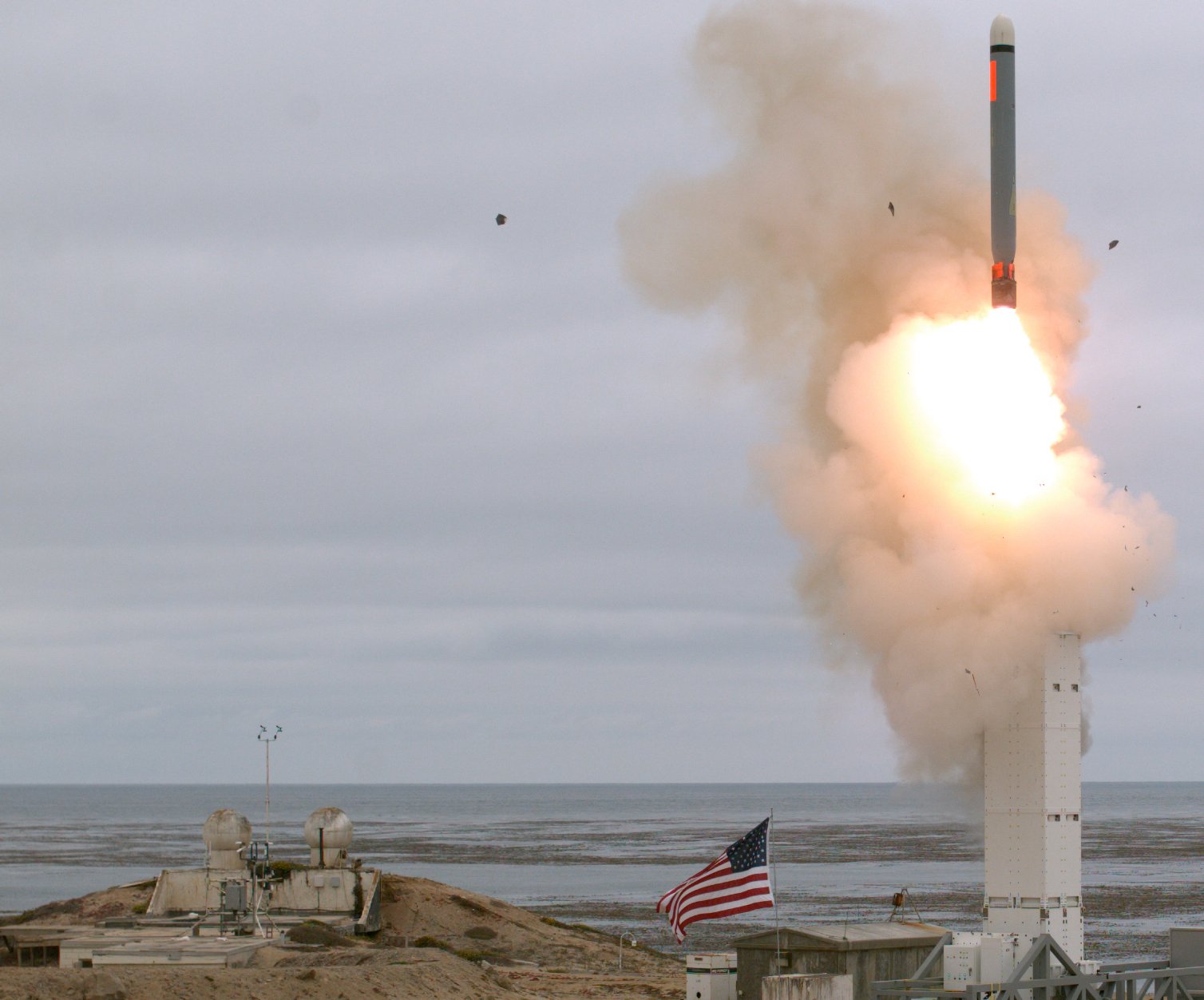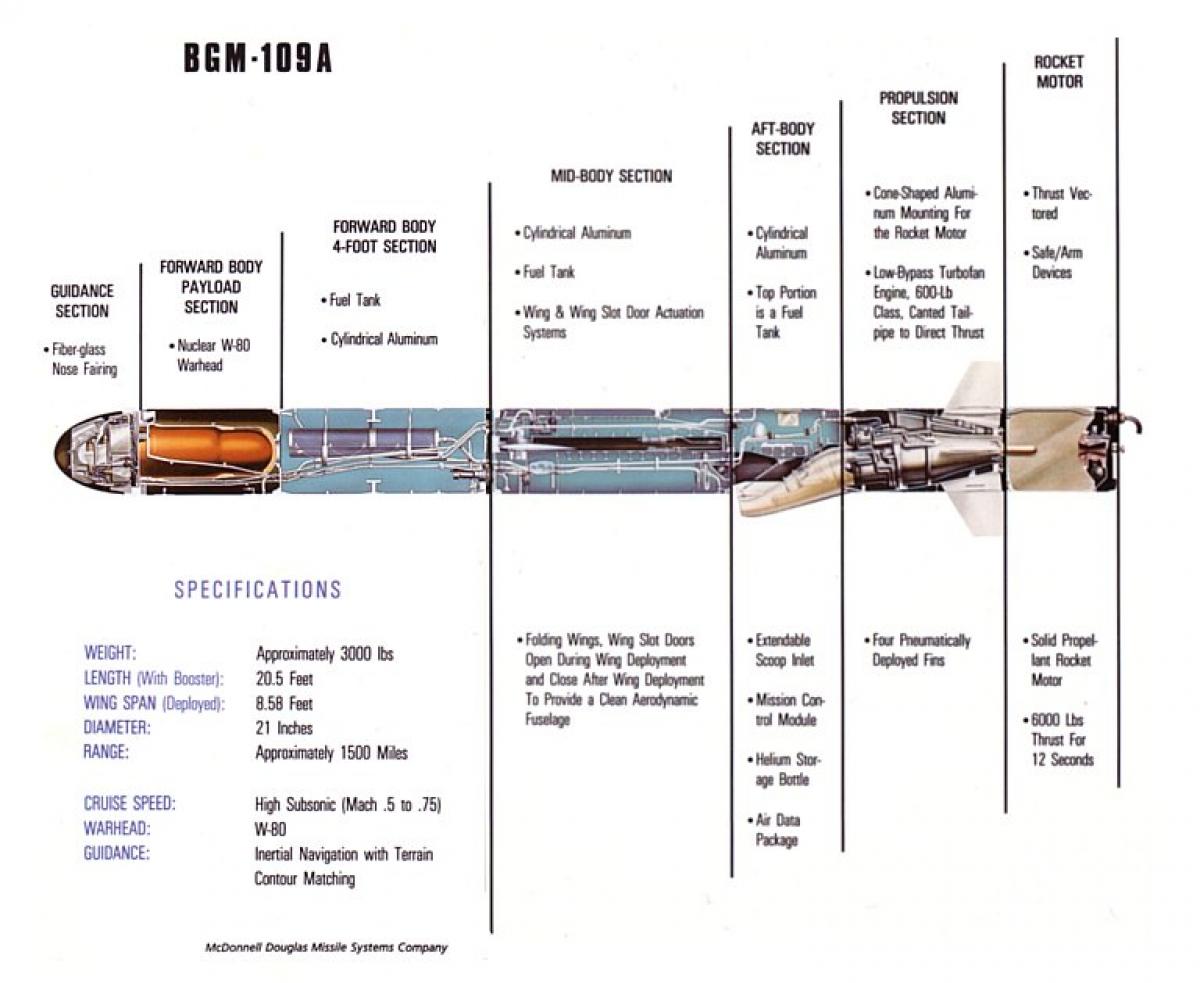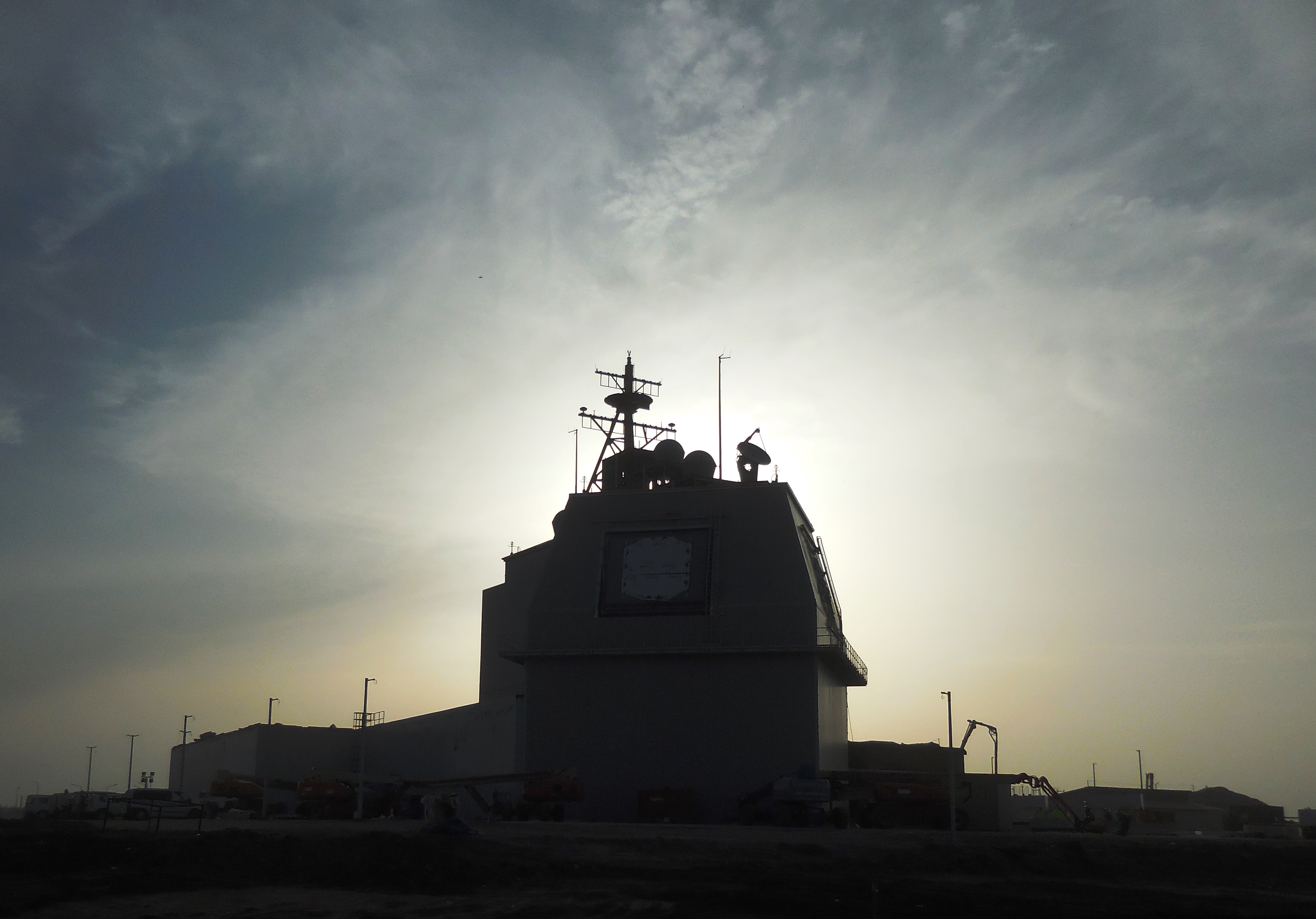
Over the weekend, the U.S. military fired what appears to be Tomahawk Block IV missile with a range of more than 500 kilometers, likely the first such test of an American missile previously banned by the Intermediate-Range Nuclear Forces (INF) Treaty.
The Pentagon did not release many details about the test, other than it occurred Sunday at San Nicolas Island, Calif., and the missile exited a ground mobile launcher and accurately hit a target more than 500 kilometers away.
“Data collected and lessons learned from this test will inform the Department of Defense’s development of future intermediate-range capabilities,” said a statement released by the Pentagon.
When signed by the United States and the Soviet Union on December 1987, the INF stipulated both nations would ban all land-based ballistic and cruise missiles with ranges between 500 and 5,500 kilometers. The ban applied to missiles with nuclear or conventional warheads but did not apply to sea-based or air-delivered missiles, according to a June 27, 2019, Congressional Research Service report about the treaty.
The test article appears to be a modified MK-41 launcher like those found on U.S. Navy guided-missile cruisers and destroyers mounted on a mobile launcher. The Tomahawk Land Attack Missile has long been part of the Navy’s portfolio. The service had previously fielded a nuclear variant of the Tomahawk.
Concerns about Russian compliance with the treaty were first raised in 2013 by the Obama administration. At the time Russia denied that it violated the treaty. A pair of meetings held in 2016 and 2017 failed to resolve the concerns of both the U.S. and Russia.
Russia claimed the Navy’s Aegis Ashore installations in Romania and Poland had already violated the INF treaty since the Mk-41 systems paired with the ballistic missile defense system.

On Oct. 20, President Donald Trump, citing Russia’s non-compliance with INF, announced the U.S. would withdraw from the treaty. The U.S. suspended participation in the treaty on Feb. 2, and also submitted an official notice of withdrawal on that day.
Six months later, on Aug. 2, U.S. Secretary of State Mike Pompeo announced the U.S. had withdrawn from the treaty, citing what he alleged was Russia’s failure to verify its compliance by destroying a noncompliant missile system – the SSC-8 or 9M729 ground-launched intermediate-range cruise missile.
“Russia is solely responsible for the treaty’s demise. Dating back to at least the mid-2000s, Russia developed, produced, flight-tested, and has now fielded multiple battalions of its noncompliant missile. The United States first raised its concerns with Russia in 2013. Russia subsequently and systematically rebuffed six years of U.S. efforts seeking Russia’s return to compliance. With the full support of our NATO Allies, the United States has determined Russia to be in material breach of the treaty, and has subsequently suspended our obligations under the treaty. Over the past six months, the United States provided Russia a final opportunity to correct its noncompliance. As it has for many years, Russia chose to keep its noncompliant missile rather than going back into compliance with its treaty obligations,” Pompeo said in a statement released on Aug. 2.

U.S. officials considered non-compliance by Russia as placing the U.S. at a disadvantage and posing a direct threat to the U.S., allies and partner nations, Pompeo’s statement said. Pompeo’s statement did not say the U.S. would also pursue developing missiles previously banned by the INF treaty. Instead, Pompeo’s statement said, “Going forward, the United States calls upon Russia and China to join us in this opportunity to deliver real security results to our nations and the entire world.”
However, the next day, Reuters reported Secretary of Defense Mark Esper left little doubt the U.S. would develop previously banned missiles, saying he favored, “placing ground-launched, intermediate-range missiles in Asia relatively soon.”
“I don’t see an arms race happening, I do see us taking proactive measures to develop a capability that we need for both the European theater and certainly this theater,” Esper said while visiting the Indo-Pacific, according to the Reuters article.





